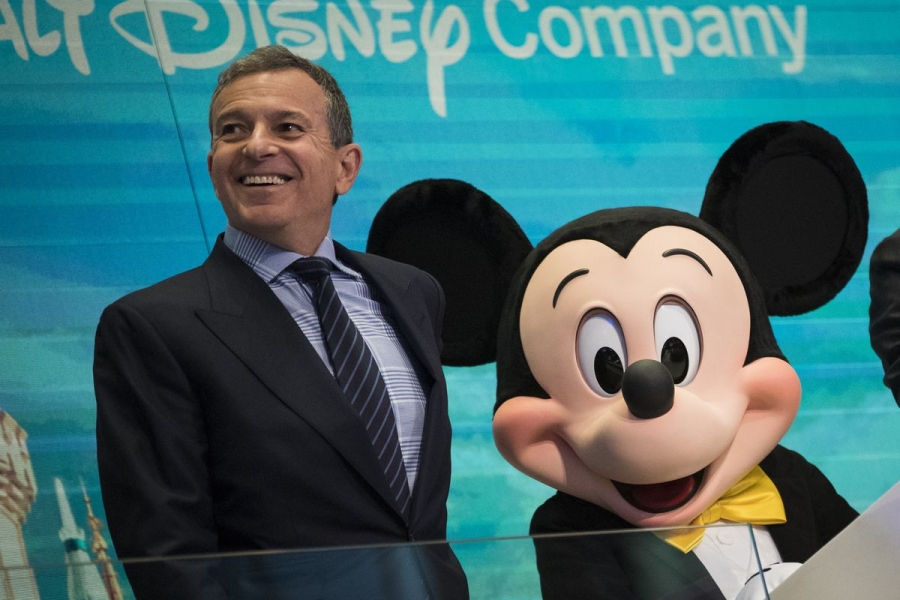In a new lawsuit, Disney accuses DeSantis of “a targeted campaign of government retaliation.”

Nicole Narea covers politics and society for Vox. She first joined Vox in 2019, and her work has also appeared in Politico, Washington Monthly, and the New Republic.
Disney is escalating its culture war with Florida Gov. Ron DeSantis into a legal war.
On Wednesday, Disney sued DeSantis and other state officials for what it claims is political retaliation for its opposition last year to Florida’s “Don’t Say Gay” law, which prevents some teachers from talking about LGBTQ+ issues or people in school. The lawsuit comes just after the new board DeSantis created to govern Disney’s Orlando resorts nullified state contracts that allowed the company to continue to develop its properties with relative independence.
The lawsuit claims that DeSantis and his allies infringed on the company’s constitutional rights and illegally voided those contracts. “A targeted campaign of government retaliation — orchestrated at every step by Governor DeSantis as punishment for Disney’s protected speech — now threatens Disney’s business operations, jeopardizes its economic future in the region, and violates its constitutional rights,” the complaint states.
The fight accelerated last month when it came to light that, just before the DeSantis-appointed board was due to take over, Disney had managed to quietly disenfranchise the new board without DeSantis allies taking notice. DeSantis, who is expected to announce a 2024 presidential bid in the coming weeks, has continued to clamp down on Disney, seeking to make an example of it as a “woke corporation” that has gone too far in embracing progressive racial and social justice policies.
In addition to pushing the board to nullify Disney’s contract, DeSantis has proposed legislation to require additional inspections at Disney theme park rides and its monorail connecting its hotels and theme parks. Apparently hinting at other ways he would punish Disney, he has also suggested the new state board could convert land in and around the Orlando theme parks into a state park, a competing amusement park, or even a state prison — and that the board should investigate raising taxes on the company.
In its lawsuit, Disney argues that those actions and threats together constitute a politically motivated campaign for revenge that violates their First Amendment rights. G.S. Hans, associate director of Cornell Law School’s First Amendment clinic, said the company might have a case. “Public officials here are speaking very brazenly about their motivations, and that usually will serve a claim of personal retaliation,” he said.
The company asked the court to reverse the move to nullify the contracts and bar Florida officials from enforcing laws signed by the governor that dissolved Disney’s special tax status and created the new governing board.
“State leaders have not been subtle about their reasons for government intervention,” the complaint states. “They have proudly declared that Disney deserves this fate because of what Disney said. This is as clear a case of retaliation as this Court is ever likely to see.”
Taryn Fenske, DeSantis’s communications director, said in a statement that the lawsuit is “yet another unfortunate example of [Disney’s] hope to undermine the will of the Florida voters and operate outside the bounds of the law.”
“We are unaware of any legal right that a company has to operate its own government or maintain special privileges not held by other businesses in the state,” she said.
DeSantis has made his fight with Disney a pillar of his political identity
A key part of DeSantis’s pitch for the presidency is his willingness to take on so-called “woke” corporations, and DeSantis has set up Disney as a primary example. Being seen as having been defeated by such a corporation would weaken his candidacy.
The governor’s battle with Disney is the subject of an entire chapter titled “The Magic Kingdom of Woke Corporatism” in DeSantis’s latest book, The Courage to Be Free. He writes about how he got married at Disney World, something he says was really his wife’s idea, not knowing that he would later be “squaring off against Disney in a political battle that would reverberate across the nation.”
DeSantis describes corporations like Disney as caving to “woke gender theory” by taking a stand on issues, such as equal rights for LGBTQ+ Americans, that he thinks they shouldn’t get involved in. And he writes about how he orchestrated a surprise session to eliminate Disney’s special tax status — the “Florida equivalent of the shot heard ’round the world.”
“Leaders must be willing to stand up and fight back when big corporations make the mistake, as Disney did, of using their economic might to advance a political agenda,” DeSantis writes.
That might be an exaggeration of Disney’s actual actions on the issue. The company only issued a statement opposing the “Don’t Say Gay” law after its CEO came under fire for remaining silent, and not before the bill became law. In that March 2022 statement, Disney vowed to work with state and national organizations to get the law repealed or struck down in court, saying that it never should have become law and that the company was “dedicated to standing up for the rights and safety of LGBTQ+ members of the Disney family, as well as the LGBTQ+ community in Florida and across the country.”
Nevertheless, as Disney’s lawsuit notes, the legislation introduced in that special session was specifically designed to target Disney and Disney alone — and Florida lawmakers admitted as much publicly. “This bill does target one company. It targets the Walt Disney Company,” said Republican state Rep. Randy Fine last April.
The fact that Florida officials have been so explicit in targeting Disney might strengthen the companies’ claims of First Amendment violations, but a few wrinkles could emerge in that strategy. Courts don’t always permit those kinds of public statements to be considered when evaluating First Amendment claims, Hans said, and it might be hard for Disney to argue that the policy decision to reinvent an archaic special tax structure was purely retaliatory.
“This is not a run-of-the-mill case,” he said. “This is not a government official going after a company saying, ‘We’re not going to work with them anymore.’ This has to do with issues in state tax law and corporate law, which I think makes it harder to predict how this would go.”
Disney is prepared to litigate those issues, but as it states in the complaint, “regrets that it has come to this.” It’s not clear that Florida voters ever wanted it to come to this either. DeSantis may have won reelection by nearly 20 percentage points and ushered in a red wave in Florida in 2022. But Disney, the state’s largest taxpayer, still proved more popular than him across multiple polls in the last year.
Still, it’s consistent with DeSantis’s attempts to position himself as a leader in culture war battles including the one with Disney, but also on restricting abortion access and loosening gun restrictions. In that sense, DeSantis, at least in theory, could benefit from a continued fight with Disney. “If he’s going to come across as a social issue warrior, he can’t give up a social issue fight,” said Robert Cahaly, senior strategist and pollster at the Trafalgar Group and a former Republican political consultant.
A settlement, however, could also give him an offramp. “This case is as much about the political fortunes of Ron DeSantis as anything else. So I suspect he wouldn’t mind [settling] as long as he gets some political benefit out of it,” Hans said.
Update, April 26, 3:30 pm ET: This story has been updated with additional legal analysis of the strength of Disney’s claims.
Source: vox.com






